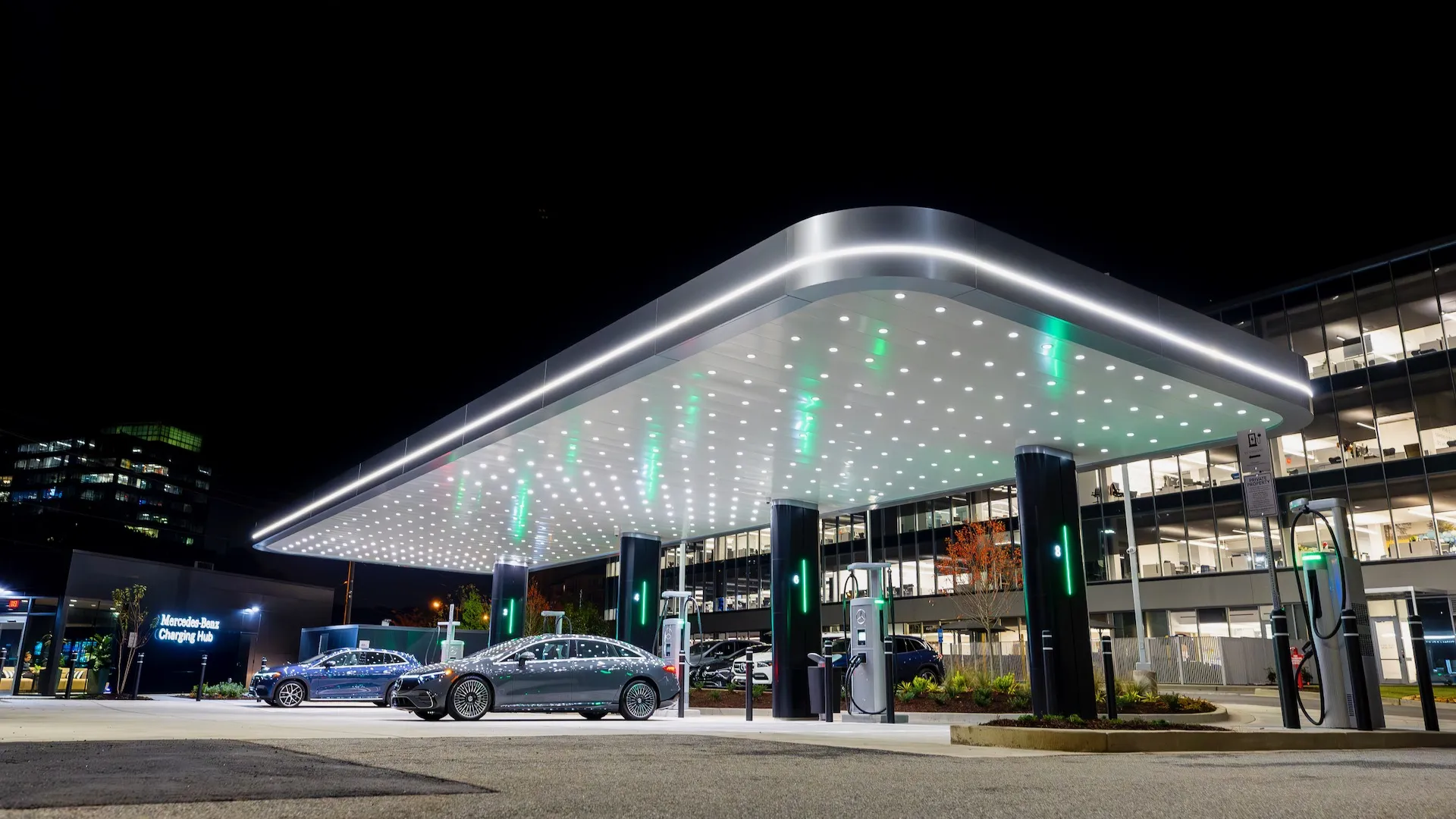Mercedes-Benz will launch its production-ready version of DRIVE PILOT in the United States. The class-leading system for conditionally automated driving rolls out in late 2023 with a limited fleet of SAE Level 3 equipped EQS Sedans in California and Nevada called DRIVE PILOT: First Class. In early 2024, Mercedes-Benz plans for additional customer deliveries of DRIVE PILOT equipped MY2024 EQS Sedan and S-Class models with participating authorized Mercedes-Benz dealers in California and Nevada.
As the first automotive manufacturer in the world to introduce this system in a standard-production vehicle to U.S. customers, Mercedes-Benz once again sets the benchmark for pioneering advancements in automated driving. California and Nevada are the first two states to approve the system and issued certification for use on major freeways. While the regulatory framework varies by state, Mercedes-Benz intends to further expand availability of this revolutionary new technology to additional U.S. markets in the future.
“DRIVE PILOT is the world’s first and only system for conditionally automated driving with internationally valid type approval. It is engineered with a sophisticated system architecture based on redundancy with many different sensor types. I strongly believe that redundancy is key for safe automated driving for level 3 and beyond. Safety is one of Mercedes-Benz core values. Responsible handling of this technology is our top priority and the key to acceptance among customers and in society,” said Markus Schäfer, Member of the Board of Management of Mercedes‑Benz Group AG, Chief Technology Officer, responsible for Development and Procurement.
“DRIVE PILOT is a technological game changer and incredible leap forward in the pursuit of conditionally automated driving. This ground-breaking system reinforces our intention to lead in safety and technology, while giving precious time back to our customers during heavy traffic situations,” said Dimitris Psillakis, President and CEO of Mercedes-Benz USA.
DRIVE PILOT: SAE Level 3 system for conditionally automated driving
DRIVE PILOT is an innovative technology that enables the vehicle to take over the dynamic driving task up to speeds of 40 mph on suitable freeway sections and during high traffic density. Once activated, DRIVE PILOT controls the speed and distance, effortlessly guiding the vehicle within its lane. During a conditionally automated journey, certain applications can be enabled on the vehicle’s integrated central display that are otherwise blocked while driving.
Safety remains central to this Mercedes-Benz innovation, which places high demands on operational reliability. DRIVE PILOT builds on the vehicle sensing technology of the Driver Assistance Package and includes additional sensors Mercedes-Benz considers indispensable for safe, conditionally automated driving. These include LiDAR, a camera in the rear window and microphones for detecting emergency vehicles, as well as a road wetness sensor in the wheel well. A vehicle equipped with DRIVE PILOT also has redundant steering and braking actuators and a redundant on-board electrical system to ensure maneuverability in the event one of these systems fails. These redundancies help to ensure a safe handover to the driver.
DRIVE PILOT will be installed on select EQS and S-Class models, and activated via the U.S. Mercedes me connect store starting at $2,500 (additional offer options will be announced at a later date). Given the advanced nature of the technology, this activation protocol ensures that customers are informed of the system’s capabilities at the time of Level 3 activation. Due to the continued advancement of software integration, a subscription-based offering also provides customers with the flexibility to choose options that are best suited for their individual needs. For example, if a customer moves to another state or area without access to Level 3 enabled freeways, they have the option not to renew the subscription.
High-precision positioning system for operating DRIVE PILOT
The exact location of a Mercedes-Benz vehicle equipped with DRIVE PILOT is determined using a high-precision positioning system that is much more powerful than conventional GPS systems. It is so accurate that it can determine the position of the vehicle within a range of inches. In addition to the anonymized data collected by LiDAR, camera, radar and ultrasonic sensors, a digital HD map provides a three-dimensional image of the road and the surroundings. This map includes information on road geometry, route characteristics, traffic signs and special traffic events (e.g. accidents or road work or construction zones). The map information is stored in backend data centers and updated constantly. Each vehicle also stores a copy of this map information on-board, constantly compares it with the backend data and updates the local dataset as required.
Considerations for the Future
Mercedes-Benz integrates social and ethical aspects in the development of automated driving and feels it is important to inform all drivers when the automated driving function is enabled via visual representation. As a result, Mercedes-Benz has developed special turquoise colored Automated Driving Marker Lights (based on SAE J3134 Recommended Practice) that would identify when DRIVE PILOT is engaged. At present, there is no national regulatory framework in the U.S. to implement this technology. The national road traffic and regulatory framework requires further adaptation to a common standard. Discussions with various state and federal agencies are ongoing, and Mercedes-Benz will further adapt the system architecture of DRIVE PILOT in accordance with defined standards as they evolve.
Legally compliant on the road
Mercedes-Benz requires that new technology featured on public roadways complies with all regulatory requirements. An interdisciplinary team consisting of technical, legal, ethical, certification and safety experts worked together in the development process, translating traffic regulations into software. Mercedes-Benz complies with the provisions in accordance with the NHTSA Standing General Order governing ADS equipped vehicles.










